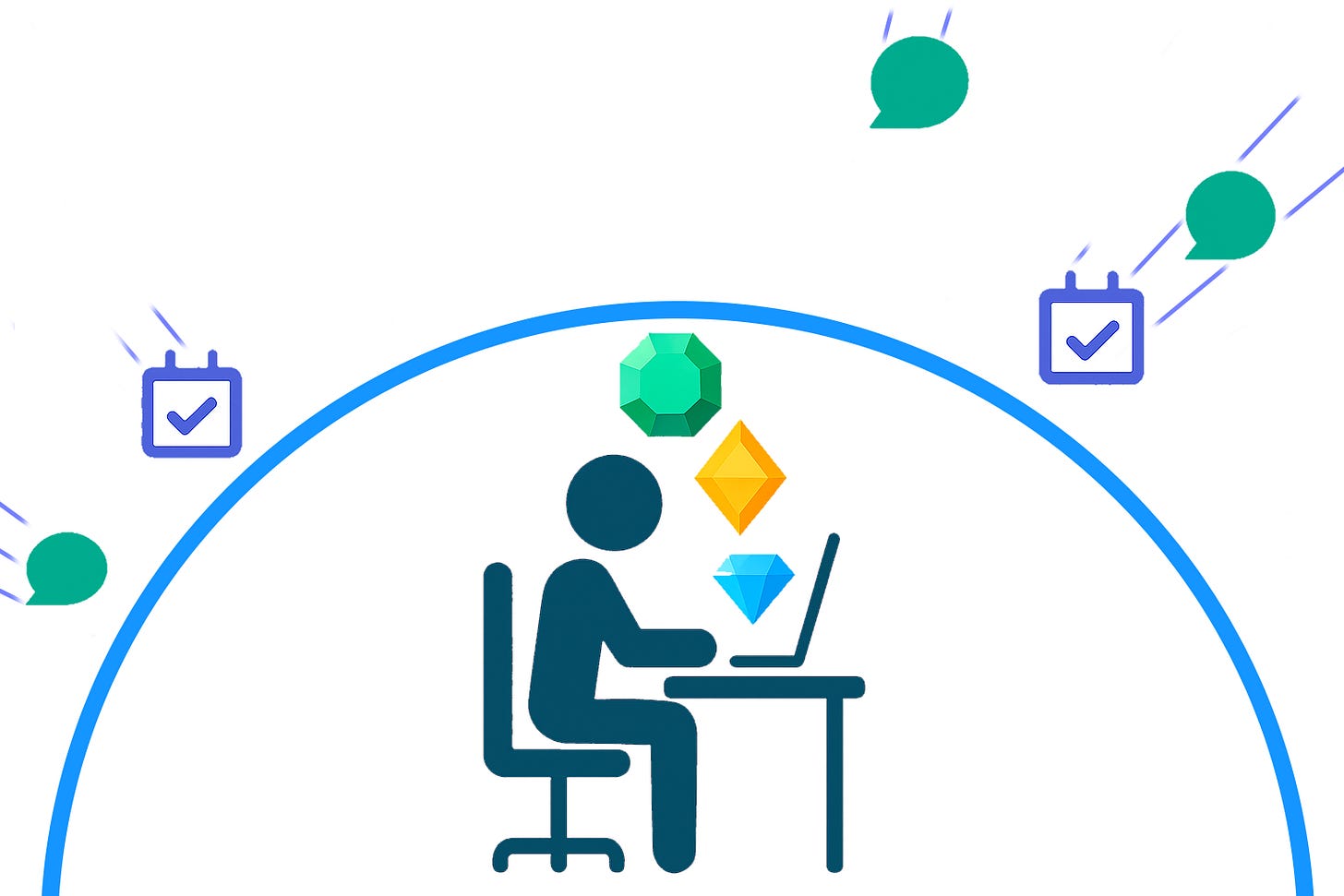Make Meetings Worth the Time
Action items that stick
“We have too many meetings” is a nearly universal gripe. The more meetings we have, the less attention we are able to give to each meeting. The less of our attention we give in a meeting, the more likely we will rehash the meeting’s discussions and decisions … with yet more meetings. Hence the adage, “The meetings will continue until morale improves.”
My team used to joke about building an app that showed how much a meeting cost the company. The math was straightforward. You build a table of the average hourly rate for each level band by dividing the salary by 2,080 hours (40 hours per week * 52 weeks in the year). Here’s the math based on Comparably’s1 distillation of averages for Microsoft:
Level I - average salary: $129K - hourly rate: $62
Level II - average salary: $135K - hourly rate: $65
Senior - average salary: $176K - hourly rate: $85
Principal - average salary: $239K - hourly rate: $115
Partner - average salary: $393K - hourly rate: $189
Then you calculate the cost of the meeting by adding up the hourly rates of everyone in the room. So a 15-person weekly status meeting composed of 1 Partner, 3 Principals, 8 Seniors, and 3 IIs would work out to a company cost of $1,409.
The point of the app is to raise the awareness of everyone in attendance to make the time together worthwhile. I guess we could take it one step further and have a $ counter displayed on the screen that for the above example meeting would tick up $0.39 every second. But then we run the risk of people just staring at the dollar counter2.
Meetings are costly. So you better make sure they’re not a waste.
Short of having that app, you can still raise your own awareness ahead of a meeting by following this <5 minute prep routine.
Pick your favorite time management mantra3, such as “Take care of the minutes and the hours will take care of themselves”, and use it to help sharpen your focus on the task ahead.
Look at the invite to see who all is in attendance and use the number of attendees to further sharpen your focus.
Read the goal and agenda of the meeting to get yourself in the right frame of mind.
Successful meetings close important open issues and raise clear action items. From a Triage Shield4 standpoint, meetings are an input-rich environment. So you want to come into every meeting in an attentive state, and you want to bring along a solid triage process for all the meeting inputs that should be raining down in the meeting.




